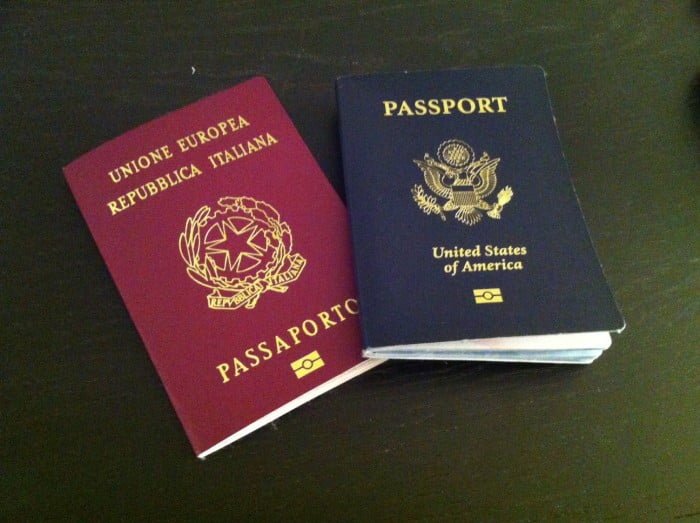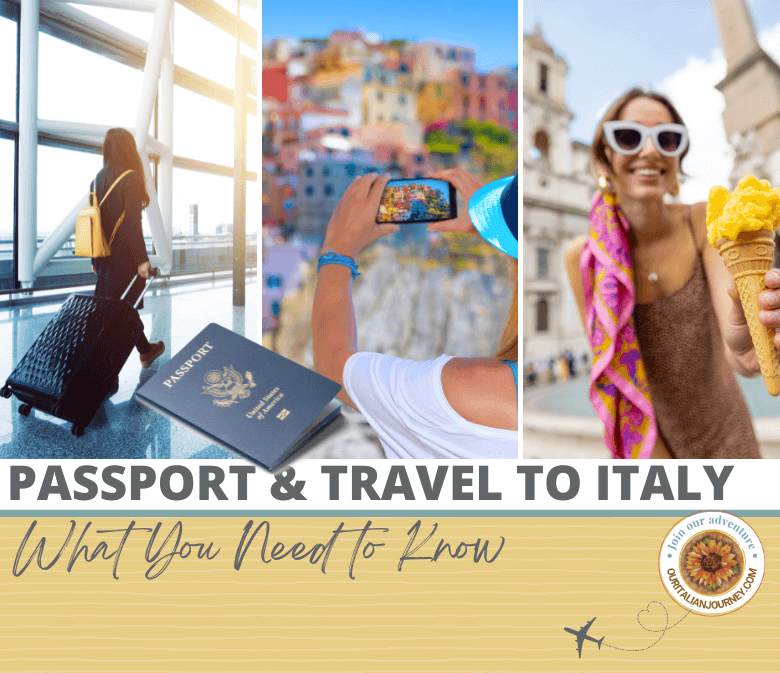The all-important passport – it can make or break your vacation. Every time I head to the airport for an international flight, I check to ensure my passport is where I keep it — even if I haven’t touched it since the last time I looked. Any traveler might do the same thing as you know your passport is the lifeline when traveling abroad.
This post contains affiliate links that help keep this website running. By purchasing through our links, we make a small commission at no extra charge to you. Thank you for your support!
An Important Passport Must
Nowadays, most of us know we must keep our passports on us at all times, especially during international travel. The one thing you should never do is put your passport in your carry-on suitcase.
NEVER
Every once in a while I read about a person getting on a plane and it winds up that the flight is full and there is not enough overhead bin space for all the passengers. Normally, the ticket agent at the gate will ask passengers to voluntarily (usually at no charge) check their carry-on bag. It’s when the last boarding zones may be required to do so, even if they had no intention of it. Hence, it becomes an issue – the hiccup – the big mistake.
When exiting the plane for international travel, you won’t get your luggage until after you go through customs. But you can’t do that, without your passport.

A Few Important Points – Passport
General Importance:
- Essential for International Travel: Your passport is the official document that proves your identity and citizenship, required by most countries for entry.
- Unlocks a World of Experiences: With a passport, you can explore diverse cultures, historical sites, and breathtaking landscapes around the globe.
- Proof of Citizenship: It verifies your nationality, crucial for embassies and consulates in case of emergencies.
- Travel Authorization: Some countries require visas in addition to your passport, but your passport is the foundation for obtaining them.
- Re-Entry to Your Home Country: You’ll need your passport to return home after your international adventure.
Specific to Italy:
- Mandatory for Entry: Italy, like all Schengen Area countries, requires a valid passport for all visitors.
- Passport Validity: Your passport must be valid for at least three months beyond your intended stay in Italy.
- Embassy Assistance: If you lose or damage your passport abroad, your embassy or consulate will need it to issue a replacement.
- Multiple Entries: Ensure you have the correct passport type (regular vs. business) if planning multiple trips within the validity period.
- Blank Pages: Some countries require a certain number of blank pages for entry stamps. Check Italy’s specific requirements.
Do I need to carry my passport at all times in Italy?
Yes, you do. Italian law requires that anyone in a public area must carry an identity document issued by their national government.
Additional Tips:
- Carry a Photocopy: Keep a photocopy of your passport’s information page in a separate location in case of loss or theft.
- Download Mobile Apps: Some countries (including Italy) offer mobile apps to store passport information digitally (helpful in case of emergencies).
- Register with Travel Advisories: Sign up for travel advisories from your home country’s embassy or consulate for updates on Italy.
- Check Visa Requirements: While a visa might not be mandatory for short stays, always double-check Italy’s visa requirements for your specific situation.
- Renew Well in Advance: Passport renewals can take time. Start the process at least 6 months before your trip to avoid delays.
If You Get Separated From Your Passport
If you accidentally check your bag at the gate and your passport is inside it – the best thing to do is immediately find an airline customer service representative. It’s a long shot but it is possible in some cases that a staff member might be able to locate your bag for you.
If that doesn’t happen, you need to immediately contact the US Embassy upon arriving at your destination and hope they can help you find a solution. You will not be able to enter the country without it.
In the case of you flying home, more than likely you can work with Border Patrol and Customs to establish your identity. But that will be entirely up to the discretion of the agents.

The Bottom Line
Always keep your passport on you and in your personal carry item. You should always keep your prescription and any pertinent travel documents with you too. As a precaution, I always take a photo with my phone of all documents and keep them in a “travel folder” on my phone. This includes the front and back of credit cards. I use a “Notes” app that allows me to ‘lock’ certain folders with a pin so even if I lose my phone, it won’t be easy for someone to find my information.
Conclusion
Traveling is a Gateway to Personal Growth. Traveling abroad broadens perspectives and fosters cultural understanding, all thanks in part to your passport. By keeping your passport secure and up-to-date, you’ll be well on your way to exploring the wonders of Italy and beyond!











I would recommend having at least 6 months on your passport, not just 3. A year or so ago, we had a friend with more than 3, but less than 6, months on his US passport and was not allowed to board a flight to Italy from Logan airport in Boston.